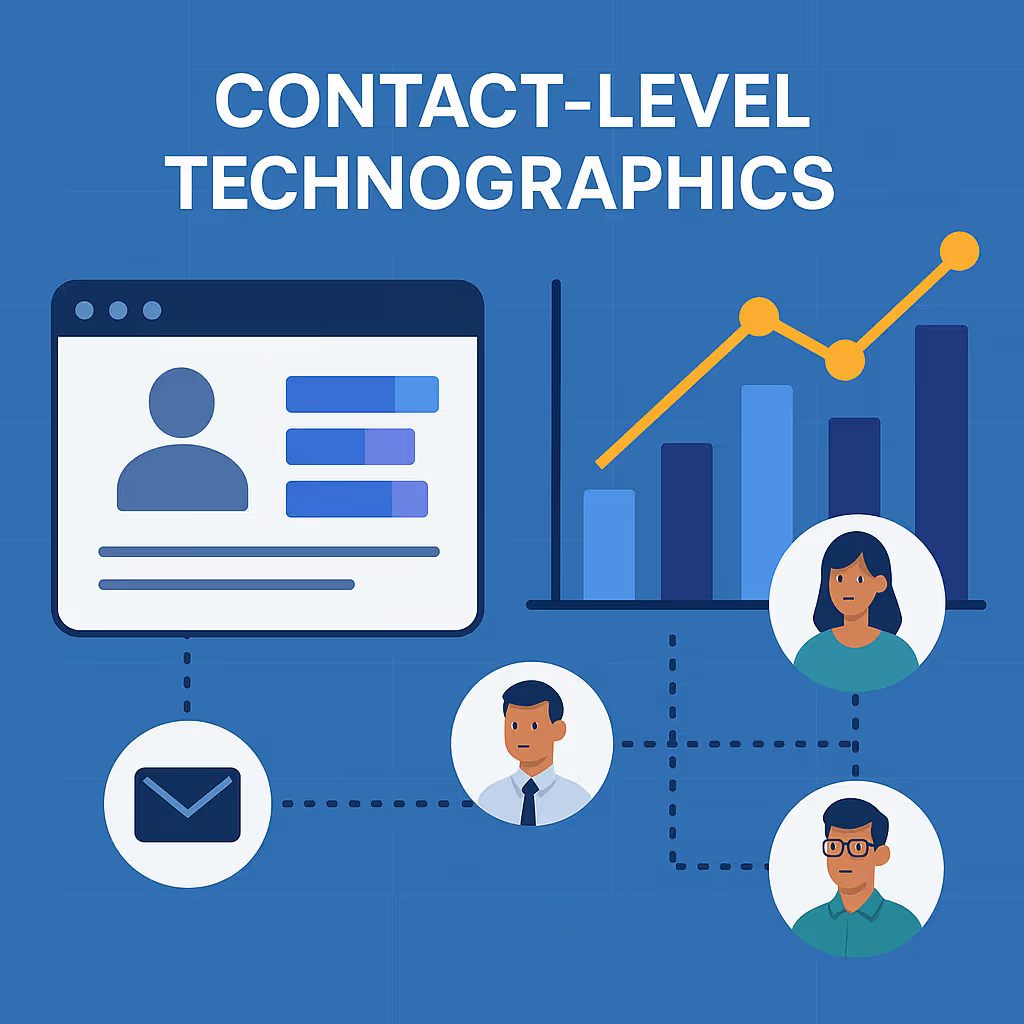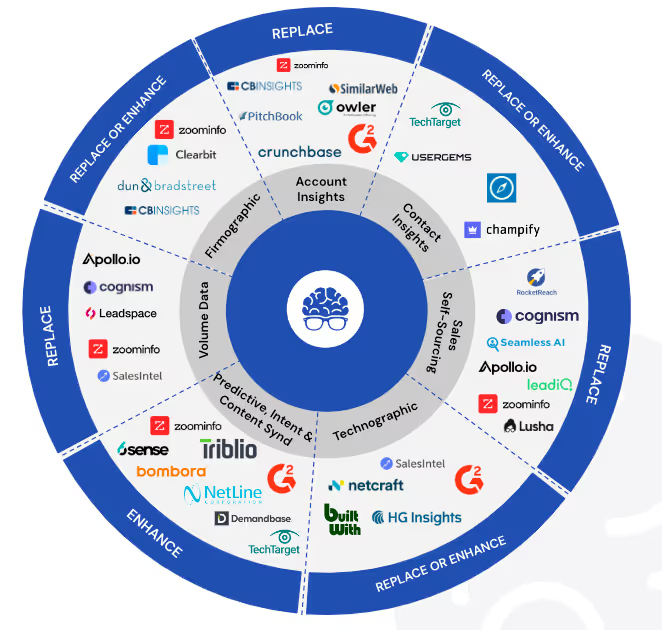Selling to the higher education sector can feel like trying to navigate a complex maze. While universities and colleges may seem straightforward, beneath the surface, they operate like mini-cities, complete with their own layers of administration, budgets, and stakeholders. And because many of these institutions fall under the public sector, they bring with them unique purchasing processes that sales teams must understand to succeed.
Whether you’re selling cutting-edge software, specialized equipment, or services that improve campus operations, approaching higher education sales with the right data and process is essential. Let’s break down why this is, what challenges to expect, and how you can overcome them to close those big-ticket deals.
Understanding the Public Sector-Like Purchasing Process
Many higher education institutions, particularly public universities, are state-funded. This funding means they must adhere to state regulations for procurement, making the sales process more akin to selling in the public sector. Here are a few critical factors to consider:
- State Regulations and Procurement Policies: Public universities are bound by state procurement regulations. A key requirement is that they can’t sign multi-year contracts unless a non-appropriation clause is included. This clause allows them to terminate the contract if the state does not provide funding in future years. So, if you're proposing a long-term solution, be sure your contracts address this point.
- Budgeting Timelines: Budget cycles can significantly impact your sales process. Most academic departments set their budgets by August or September for the upcoming fiscal year. If your product or service isn’t already in their budget, it may take up to a year before the deal can be approved. Understanding these timelines early on helps set realistic expectations and allows you to position your solution before the next cycle.
- Stakeholder Complexity: Universities are decentralized, with each department or unit often having its own budget and authority to make decisions—up to a point. However, for larger purchases or items that impact multiple departments (such as IT infrastructure), approval may need to go through central administration or involve multiple layers of stakeholders. Knowing who holds the power and who can influence decisions will help you navigate the process more efficiently.
Navigating the University “City”
One way to think about a university is to view it as a small city, with each department, school, or unit operating almost like its own business. Whether it’s academic departments, central IT, facilities, or campus services, each has its own decision-making process and priorities. This decentralized structure makes universities both a challenge and an opportunity for sales teams.
Selling to Academic Departments
Selling to individual academic departments is often more straightforward. Department chairs usually have purchasing authority if the item is within their budget. However, keep in mind:
- Budget Planning: As mentioned earlier, getting your product or service into the department’s budget may take some time. Planning your outreach well before the budget cycle can give you a head start.
- Departmental Needs: Many academic departments don’t have their own IT staff. For technology purchases, they may depend on central IT or at least need their recommendation. Understanding the dynamics between the department and IT is crucial to ensuring you’re speaking to the right decision-makers.
Selling Campus-Wide Solutions
For campus-wide solutions, such as IT infrastructure or security systems, the process becomes more complex. You’ll need to:
- Engage Central IT: Central IT is likely to be a key stakeholder, especially if the solution involves campus-wide implementation. They’ll be concerned with scalability, security, and integration with existing systems. Make sure you address their concerns early.
- Secure an Executive Sponsor: Larger projects often require an executive sponsor, such as a provost, CFO, or VP of administration. Identifying this person early and understanding their decision-making criteria can accelerate the deal. Help your internal champions build a solid business case that addresses the needs of both their department and the institution as a whole.
The Art of Multi-Threading and Managing Multiple Stakeholders
One of the most challenging aspects of selling to higher education is the sheer number of stakeholders involved. You may start your conversation with a department chair or an IT manager, but as the deal progresses, you’ll likely find that more stakeholders—each with their own interests—are involved. The trick is to multi-thread effectively and keep communication clear with each party.
Tips for Managing Stakeholders
- Run Workshops: Universities are big on collaboration. Running a workshop that highlights use cases and the benefits of your solution can engage multiple departments at once and bring any hidden stakeholders to the surface. These workshops give you a chance to build consensus and showcase the value of your product across departments.
- Identify Challenges for Each Department: Different departments will have different challenges and needs. Tailoring your messaging to address these individually helps move the conversation forward faster. The more you can speak to specific pain points, the more likely you’ll be to win support from various stakeholders.
- Proactive Approach to Legal and Security Reviews: If your product or service involves IT or data security, be prepared for lengthy contract reviews and information security processes. These reviews can delay deals by weeks, if not months. Start this process as early as possible by providing legal, compliance, and security teams with content that addresses common questions upfront.
How the Right Data and Process Can Make All the Difference
Now that we’ve outlined the challenges of selling to higher ed, let’s talk about the importance of data and process.
Why Data is Critical
In higher ed, knowing who to contact and how to navigate the complex organizational structure is half the battle. Having access to custom data can help you:
- Identify Decision-Makers and Influencers: Use firmographic and technographic data to map out who’s who at the university, including department heads, IT managers, procurement officers, and executive sponsors.
- Pinpoint Budget Timelines: Understanding when each department sets its budget and aligning your sales process accordingly will save you time and frustration.
- Tailor Messaging to Specific Needs: Different stakeholders have different priorities. Having insights into their specific challenges and current initiatives allows you to personalize your outreach and address their unique concerns.
Why Process Matters
A streamlined sales process will keep your deals moving forward, especially when navigating the complex world of higher ed procurement. A few key elements include:
- Multi-Threading: Don’t put all your eggs in one basket by relying on a single champion. Engage multiple stakeholders early and often.
- Workshops and Demos: Bring potential blockers into the conversation early by offering value through educational workshops or live demos. The more stakeholders understand the solution, the easier it will be to gain buy-in.
- Proactive Legal and Security Engagement: Get ahead of potential roadblocks by engaging legal, procurement, and IT security teams early. Provide clear documentation that answers their concerns and speeds up the review process.
The Bottom Line
Selling to higher education requires patience, the right strategy, and, most importantly, the right data. By understanding the unique dynamics of public-sector-like procurement, engaging multiple stakeholders, and tailoring your approach to individual department needs, you can close deals faster and build long-lasting relationships with universities.
And remember, universities are small cities. With the right approach, you can help them thrive while navigating the complexities of their purchasing process. Selling to higher ed may be a challenge, but when done right, it’s incredibly rewarding.
Want to learn more about how LeadGenius can help you with custom data insights for the higher ed vertical? Get in touch with us today to see how we can simplify your process and get you connected with the right stakeholders.




